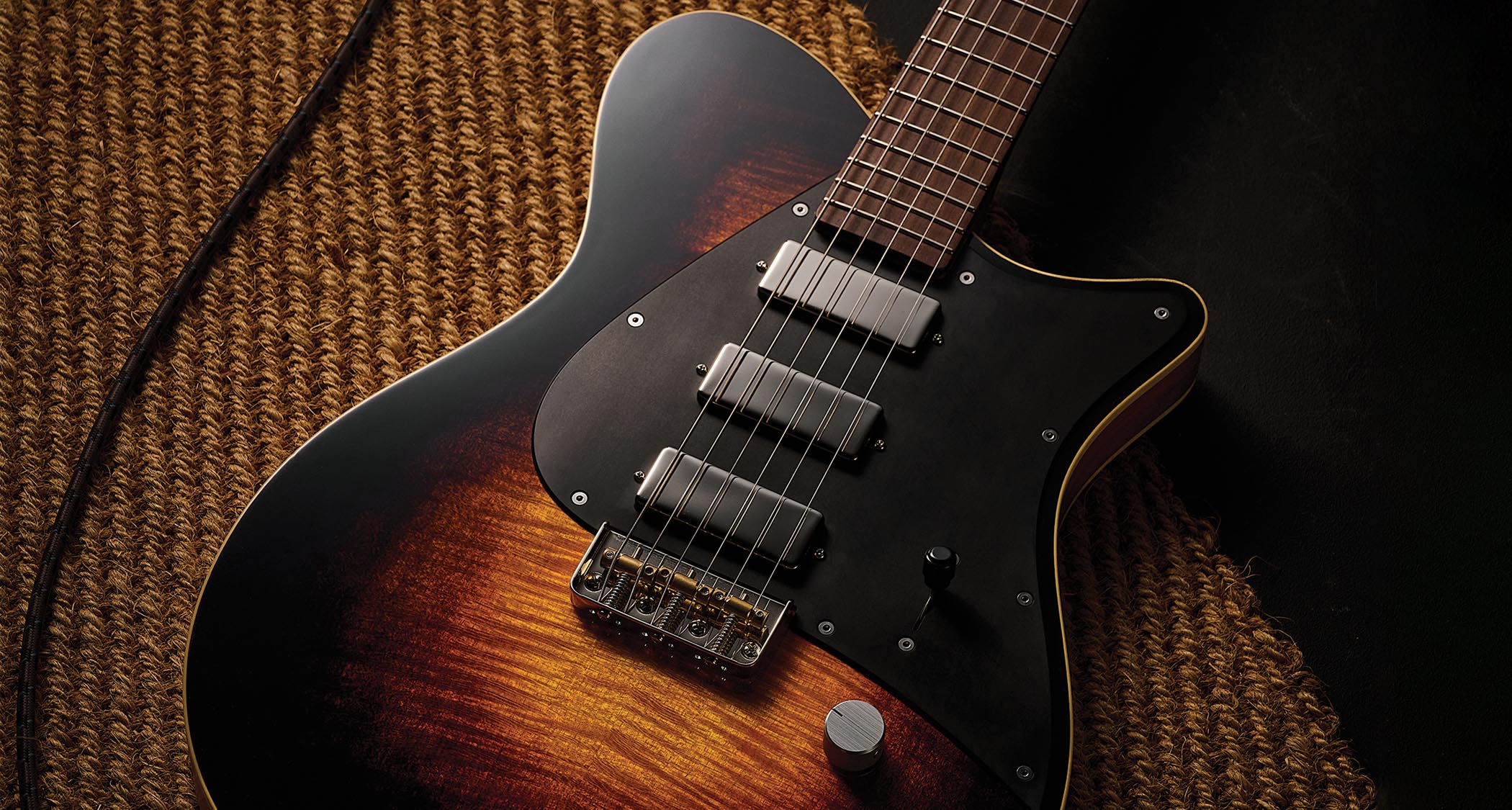“We’ve been talking about it for a decade – our artists want ‘that’ sound in their arsenal”: How Myles Kennedy and Paul Reed Smith reinvented a classic
Satisfying an artist is one thing, creating a new version of an old favorite is another. With the new Myles Kennedy signature and NF 53, PRS has attempted to do both

All the latest guitar news, interviews, lessons, reviews, deals and more, direct to your inbox!
You are now subscribed
Your newsletter sign-up was successful
While bolt-on guitars go back to the early days of PRS, the John Mayer Silver Sky cracked the code. “The Silver Sky was a retooling of an historic device,” says Paul Reed Smith today. “It was a goal to get somebody incredibly comfortable with our instruments. This [the new MK and NF 53], on the other hand, is after a feel and sound in a different way.
“We’ve been talking about it for a decade,” Paul reveals, “because our artists want that sound in their arsenal, but the thing that was not okay with me was the hum [from the single-coil pickups]. Very often with those instruments the hum can be louder than the guitar.”
Myles Kennedy bought his first PRS in 1998, the red McCarty that he still uses with Alter Bridge today, but he’s a long-time Telecaster player, too. “I was a huge Radiohead fan so my first one is the same [Fender Telecaster Plus] as Jonny Greenwood played with the Lace Sensors: that was the beginning. Then I started becoming enamoured by early Blackguards, ’53s, ’52s, Nocasters. I really love them, especially those early ones.
“We actually started talking about doing a signature model some years ago, I’d say about 2014,” continues Myles. “But at that time I just wasn’t really sure what that would be. After some years, I remember PRS called and said, ‘We think it’s time, let’s do this.’ We just started riffing – pun intended! – on what might be cool. They presented the idea: what if we took a more T-style approach? Let’s put our heads together and see what we can come up with. I would say that was about two years ago.”
Prototypes to production
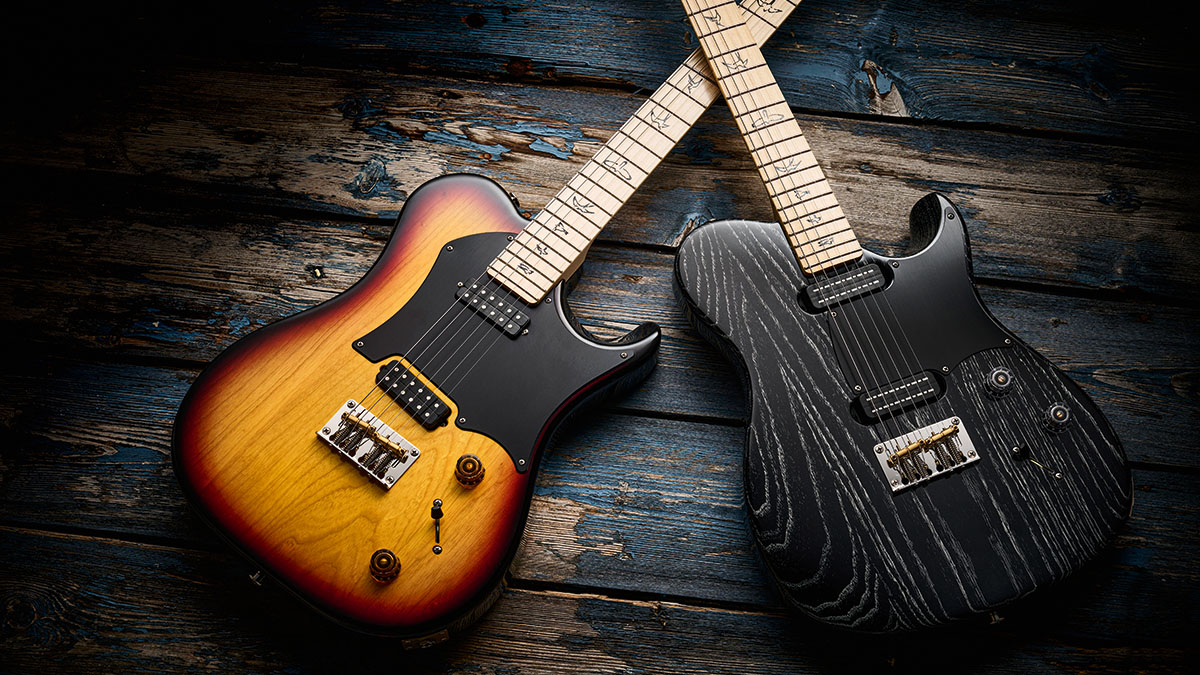
The first thing anyone outside of the PRS family knew about the MK signature was when Myles was pictured gigging it in early 2022.
“Actually, I had used a prototype for almost the entire recording of the last Alter Bridge record [Pawns & Kings, released in October 2022], which had been finished by that point. So what you hear from me on Pawns & Kings is that prototype.
“I remember reaching out to PRS; I was going to do a solo tour and I couldn’t imagine not being able to perform with that guitar. It’d become such an important part of the journey. [PRS] were going, ‘Well, it’s kind of a secret…’ But Paul was like, ‘Come on, the kid wants to play the guitar!’”
All the latest guitar news, interviews, lessons, reviews, deals and more, direct to your inbox!
I think part of the function of the signature guitar is that it really does work well in a rock environment, but it does very well if you’re going to use it in a country band
Myles Kennedy
Would we be right in saying that the MK is pretty much Myles’ vision of his ‘perfect’ T-style while the NF 53 is yours, we ask Paul. “Yeah,” he says, “except… I sat in with Myles, and what was coming out didn’t exactly, as you’d say, sound like a T-style: it sounded like Mr Kennedy playing all the tunes in a studio! I was stunned.
“It had a sound of its own that I really liked. The NF 53, while it gets that quack, it’s a little thicker sounding. If you pick up a ’56 or ’66 Telecaster it’s got an unbearable amount of high-end, the high E’s not very loud: they have problems. The NF 53 is thicker, fuller but has that sound at the same time.
“The guitars were created in parallel. We were working on the body shape and contouring for the MK at the same time as the NF 53. But to explain launching them at different times would have been almost impossible. To have both explained and evaluated together – as you’re doing – where one’s a little louder, one’s got a little different high midrange, the slightly different body shapes, makes so much more sense. Better to have the conversation now than later.”
Like us, Myles has played both new guitars. “I really like that guitar [NF 53],” he says. “I feel like if I’m going to sit down and – the key word here is try to – play some Danny Gatton licks, it’s an amazing guitar. But I think part of the function of the signature guitar is that it really does work well in a rock environment, but it does very well if you’re going to use it in a country band.
“I’m kind of a closet funk guy, too: I love sitting around and jamming to Earth, Wind & Fire or Chic – anything Nile Rodgers, he’s the man! The signature works really well for that, but you can play straight up blues and rock. It’s a very versatile instrument.”
Pickup tricks
Early on, Myles settled for Narrowfield humbuckers: “[PRS] knew I loved single coils. There’s a certain tonal characteristic that we all know and love, but the problem with single coils is that they’re noisy, especially in high-gain environments with Alter Bridge. So we thought Narrowfields would be perfect. We get the characteristics that we all love, but they’re going to be quiet.”
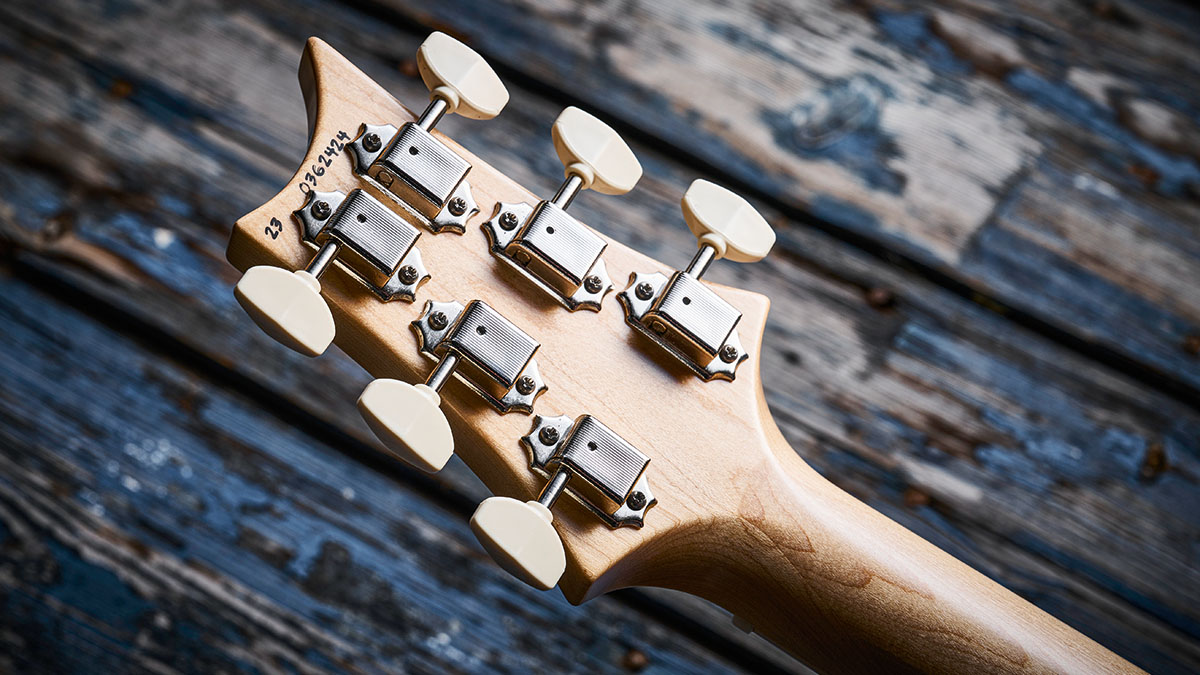
But there were tweaks. “They are different [to the standard Narrowfields],” says Paul. “They have different magnets and windings. It’s down to TCI again: we tuned those pickups for him. Myles sent us his favourite guitars and we measured them. His intention was to have something in between a Telecaster and a PRS – he was using a Tele on some tracks and a PRS on others, so he wanted to get both [from the same guitar]. We literally put the resonant frequency in the middle, between the two.”
The neck pickup on the NF 53 is tuned to the note of a really good Strat pickup
Paul Reed Smith
As to the completely new NF 53 pickups, we’re back to PRS’s TCI process: “In our world at PRS we’re starting to get to what these things [pickups] are tuned to,” says Paul. “We know what the note of the bridge pickup on an old ’53 Blackguard is and we’re thinking more about the note it’s tuned to now, [rather] than calling it a ‘Telecaster sound’; we’re looking at it as a tuned resonance. It used to be, ‘We’ve got to have that Tele sound,’ right? Now it’s more like, ‘I want that thing to ring at 7.2k [kHz], 7.4k.’”
You get the impression that PRS is cleverly playing with reference sounds. For example, Paul isn’t a fan of the Telecaster’s neck pickup, which, he muses, “isn’t great – that’s why people have been changing them for years. That’s why people like Esquires: it doesn’t have a neck pickup so nobody cares. A Strat’s neck pickup is tuned higher in pitch; the neck pickup on the NF 53 is tuned to the note of a really good Strat pickup.”
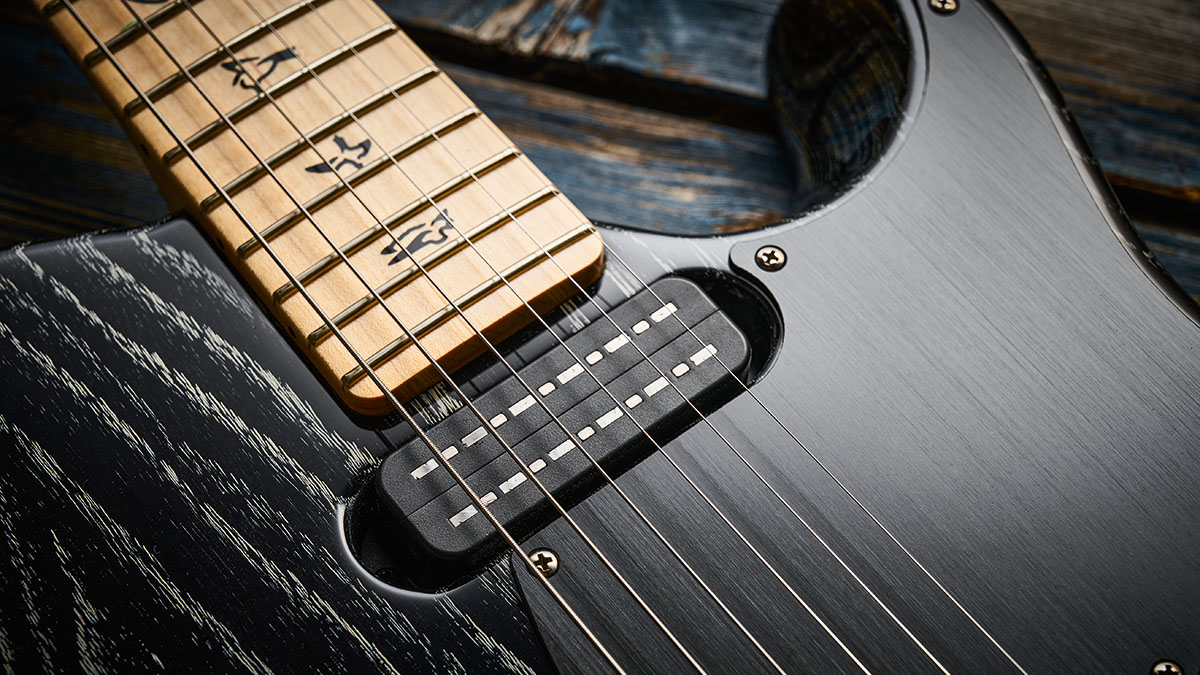
While the NF 53 comes across as the purist version, the MK has broader sound options and illustrates more diverse needs, which are increased by the unique preset tone roll-off switch.
“I knew I wanted that single-coil top-end, but in the different groups I play with, especially Alter Bridge, that wasn’t always going to work,” says Myles. “So I thought, ‘What if we had something that would shave off the top-end?’ Basically, take the tone knob and cut it in half because that’s where I would set it a lot of times in that environment [Alter Bridge].
We’ve made a lot of artist guitars, and you better do it the way they want otherwise, longterm, they’re not going to love them
Paul Reed Smith
“So I said, ‘What if we had a push-pull and we also made it so it didn’t affect the neck pickup?’ Then I can use that full open and get that nice chime-y thing if I need it, or do some funky Nile Rodgers thing without it being too dark. In fact, with Alter Bridge I probably have it pulled out most of the time.”
“He wanted [a sound to simulate] a tone control turned down to about 6,” adds Paul. “We measured exactly what he wanted and put it in. This is all player-centric stuff.
“We’ve made a lot of artist guitars,” Paul concludes, “and you better do it the way they want otherwise, longterm, they’re not going to love them. My opinion is just do it and be done with it. If they want me to put someone else’s name on the headstock, that’s not going to happen – but pretty much everything else we can do.”
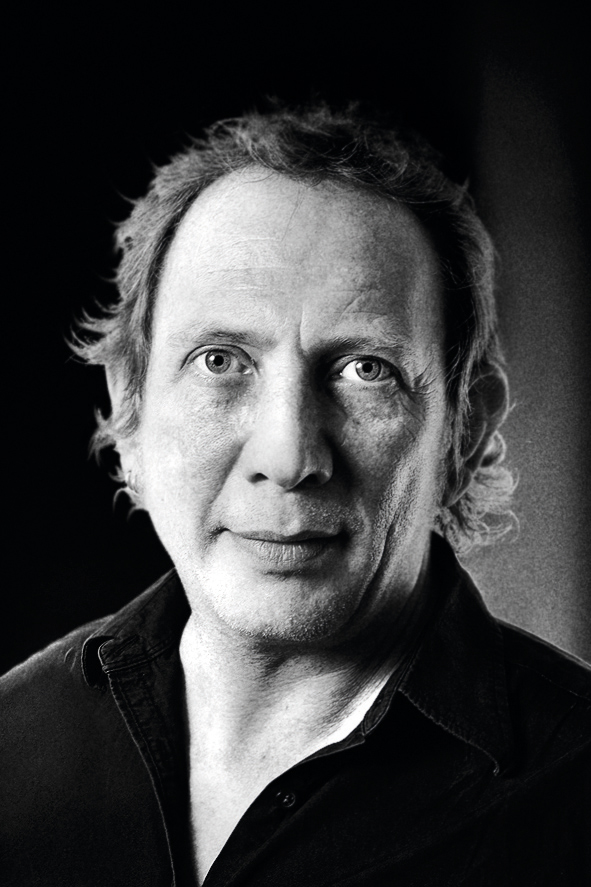
Dave Burrluck is one of the world’s most experienced guitar journalists, who started writing back in the '80s for International Musician and Recording World, co-founded The Guitar Magazine and has been the Gear Reviews Editor of Guitarist magazine for the past two decades. Along the way, Dave has been the sole author of The PRS Guitar Book and The Player's Guide to Guitar Maintenance as well as contributing to numerous other books on the electric guitar. Dave is an active gigging and recording musician and still finds time to make, repair and mod guitars, not least for Guitarist’s The Mod Squad.

